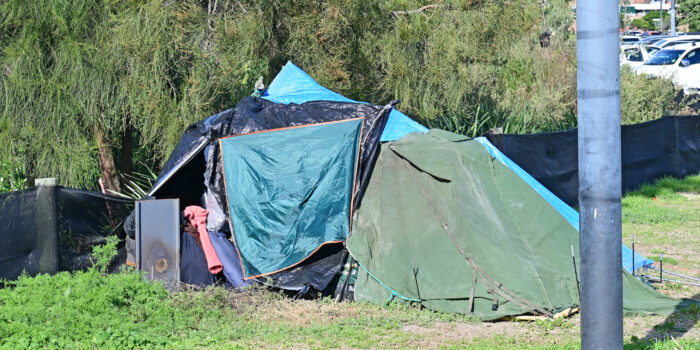How far can a belligerent neighbour go to deter potential buyers of the house next door to satisfy a grudge they hold against the owner or someone associated with that property?
The question recently confronted the NSW Supreme Court in an application for an interlocutory injunction to restrain a neighbour from handing out flyers disparaging of the property to would-be buyers during house opens for their inspection.
 Geoffrey McAuley had stationed himself outside a duplex property development owned by Ischnura Group Pty Ltd that adjoins his residence on three occasions, handing out such a ‘flyer’ implying that the neighbouring property contains a range of defects.
Geoffrey McAuley had stationed himself outside a duplex property development owned by Ischnura Group Pty Ltd that adjoins his residence on three occasions, handing out such a ‘flyer’ implying that the neighbouring property contains a range of defects.
McAuley’s beef was with Amescorp Pty Ltd who had been contracted by Ischnura to perform demolition, construct the foundation slab and project manage the build.
Ischnura sought the neighbour injunction to restrain McAuley from repeating such conduct on dates planned for further open homes.
That McAuley was reported to have “evaded service” of the court proceedings persuaded the court to consider the application on an urgent ex parte basis.
The cause of action relied upon was “injurious falsehood”, namely the publication of false statements “calculated to induce others not to deal with the plaintiff”.
To succeed, Ischnura would need to convince the court that the statements were false; that they were was published to a third party; that there was malice on McAuley’s part; and that it would suffer actual loss as a result.
Justice Nicholas Chen was persuaded that there was an arguable case that all four elements could be proved and that the neighbour injunction should be granted forthwith.
In particular, he observed: “it is evident he holds grievances with Amescorp and that those grievances are motivating him to [publish] statements [that] were false or that he was recklessly indifferent to their truth or falsity”.
The “general loss of custom or business” was sufficient – in the judge’s view – to establish a likelihood of a “loss” for the purpose of the relief sought.
Given it was likely that McAuley would continue to distribute the flyer unless restrained and the risk of him doing would result in significant damage, Justice Chen ruled that “the balance of convenience” favours granting the injunction.
“The plaintiff should be provided the opportunity to sell the property without the defendant’s interference and the risk of a depressed price”.
Ischnura is now free to market its Dundas property in Sydney’s west, without the aggravation and harassment of the neighbouring owner. The company also seeks damages from McAuley which will be determined – together with the issue of his liability for legal costs of the injunction proceedings – at a later date.
Ischnura Group Pty Ltd v McAuley [2022] NSWSC 1223 Chen J, 9 September 2022 Read case





